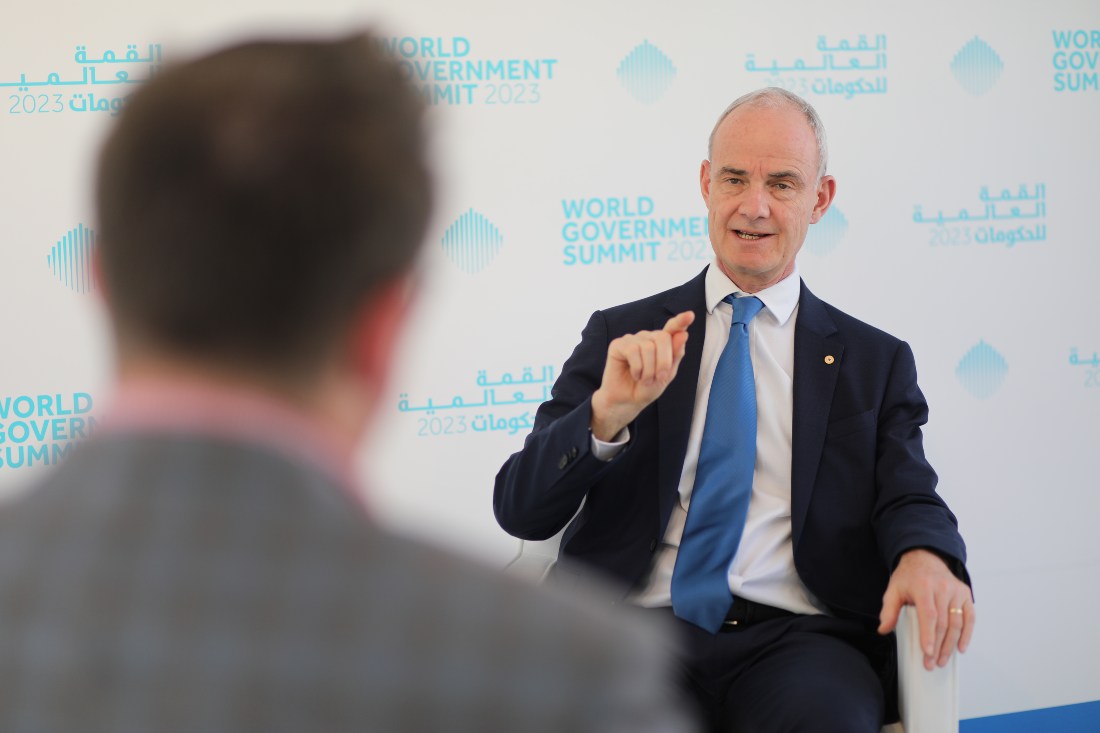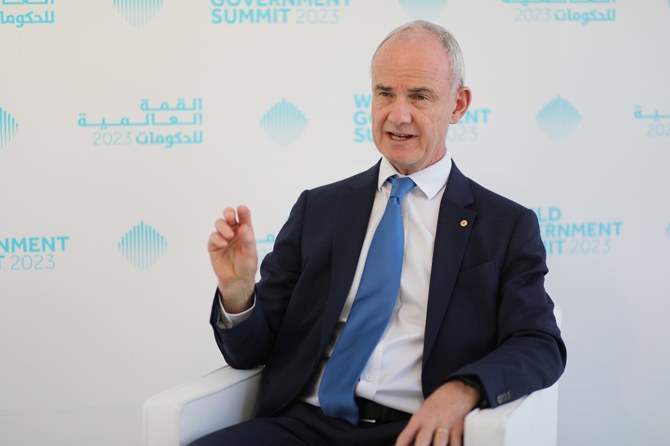DUBAI: After more than a decade of war, and a succession of devastating earthquakes just hours apart which killed thousands, Syrians are now facing yet another life-threatening crisis — this time an outbreak of cholera.
The Red Cross had already been monitoring northern Syria due to concerns of an outbreak late last year.
"We were concerned last December because of the cholera outbreak already in the north of Syria. And we have tried to maintain water provision systems up and running despite this erosion of this critical infrastructure. And because of poor water, we have a concern of a new outbreak," Gilles Carbonnier, vice president of the International Committee of the Red Cross, told Arab News on the sidelines of the World Government Summit in Dubai.
When the Feb. 6 quake ripped through the border area where Turkiye and Syria meet — killing tens of thousands — further fears of another outbreak followed, Carbonnier said.
The decades-old water pumping system in the region was already fragile after years of neglect as the war developed, so when the earthquake struck, it was inevitable that the force would be too much for it to bear.
Moreover, over the war years Syria has seen a movement of its population; people have been displaced as different factions in the war continue to fight.
This constant movement has placed a further burden on both the water provision system and the wastewater treatment systems.
There has been concern voiced by some that Syria has not been able to count on the expected degree of support following the earthquakes.

Carbonnier said the Red Cross had used its neutral stance to negotiate with the UN to allow its workers into areas held by all sides in Syria. (AN Photo/Mohamed Fawzy)
But Carbonnier said the Red Cross had used its neutral stance to negotiate with various parties to allow its workers into areas held by all sides - rebels, regime and jihadists - to enable its workforce to help.
The Red Cross gaining access to Syria’s worst-hit areas means that communities can now receive essential drugs, medicine and medical equipment, Carbonnier said, adding that some of the chemicals needed to purify water were also being allowed in.
Of course, in an area like Syria, the situation is not straightforward — there are not just two sides.
So gaining access to areas requires persistence and effort in often life-threatening situations.
The Red Cross is not affiliated to any political body, or country. It operates under a strict rule of neutrality, focusing on gaining the trust not only of the people it wants to help, but also the often hostile forces which are present where those people are living.
“Syria is exactly the same: We have always engaged in a confidential dialogue,” Carbonnier said.
“We are not an advocacy organization. Our role is not to speak out publicly. We have a role to deliver on the ground.”
A delegation of the Red Cross has spent the past week in Syria negotiating access to those hit by the quake.
Carbonnier added: “And today what we say is that humanitarian aid must not be politicized.”
He said that the humanitarian effort must be focused on helping those who need it, whoever and wherever they are.
He said: “It’s not known precisely how many people are trapped under the rubble in the vast quake zone — years of war in Syria have made it nearly impossible for there to be an accurate record of precisely how many people might be missing or dead.”
The problem is made worse by the internal displacement of millions who are constantly on the move as they flee the war.
But the Red Cross is attempting to offer some help, by aiding people who have lost contact with loved ones. There is no guarantee that these people will be found, or whether they will still be alive.
But, Carbonnier said, the knowledge of what has happened to a lost relative, while it may be upsetting, can provide some level of closure and an end to the heartbreak of simply not knowing.

Carbonnier said the requirements for help and relief in Syria were huge, and acknowledged the aid already dispatched by Saudi Arabia and the UAE, as well as other Arab nations. (AN Photo/Mohamed Fawzy)
He said: “We have seen that for families, the worst that can happen is to spend years without any knowledge.
“Even if the news is the death of a loved one, it’s really much better to get this news as soon as possible to start the grieving period, rather than to spend years hoping.”
When pressed on how high the earthquake’s death toll may eventually turn out to be, Carbonnier would not guess, but said it would likely continue to grow, and added “the number keeps growing every day.”
He said the requirements for help and relief were huge, and acknowledged the aid already dispatched by Saudi Arabia and the UAE, as well as other Arab nations, describing the reaction as a “global solidarity movement.”
He added: “We have a strong movement of generosity. And it is key that, you know, we are able then to deliver.”
He said the aid was essential as the Red Cross was working in Syria based on a “budget that we had foreseen for this year.”
He added: “We really need a budget extension.”




























